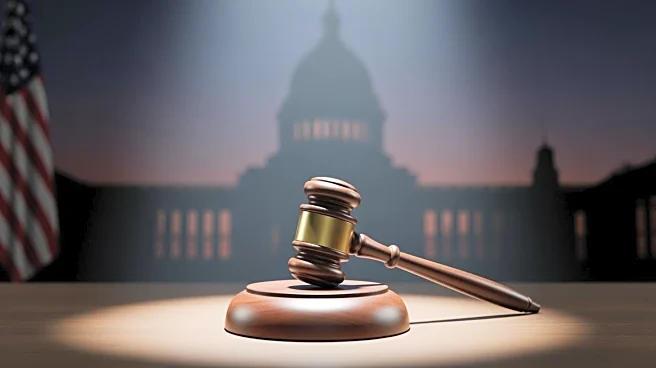What's Happening?
A Florida judge has temporarily halted the transfer of a prime piece of downtown Miami real estate intended for President Trump's presidential library. Circuit Judge Mavel Ruiz issued the ruling following
a lawsuit by Miami activist Marvin Dunn, who claimed that Miami Dade College officials violated Florida's open government law. The college had gifted the land to the state, which then planned to transfer it to the Trump library foundation. The property, valued at over $67 million, is considered highly desirable for development. The lawsuit argues that the college failed to provide adequate public notice before voting on the land transfer, a move that Dunn alleges deprived the public of transparency. The foundation for the library is led by Eric Trump, Michael Boulos, and James Kiley.
Why It's Important?
The legal dispute over the land transfer for President Trump's presidential library highlights significant issues regarding transparency and governance in public land transactions. The case underscores the importance of adhering to open government laws, which are designed to ensure public awareness and participation in governmental decisions. The outcome of this case could set a precedent for how similar transactions are handled in the future, particularly in politically sensitive contexts. Additionally, the decision impacts the Trump family's plans for the library, potentially delaying or altering its development. The case also reflects broader tensions in Florida politics, where Governor Ron DeSantis has taken steps to facilitate the library's establishment despite potential local opposition.
What's Next?
The legal proceedings are expected to continue as both sides prepare for further arguments. Miami Dade College may face financial implications due to delays in the land transfer, estimated to cost up to $300,000. The college's legal team argues that they complied with the law, while Dunn's attorneys maintain that the public was inadequately informed. The case could lead to increased scrutiny of public land transactions and influence future legislative actions regarding presidential libraries. Stakeholders, including local government officials and community activists, will likely monitor the case closely, given its implications for public transparency and land use.
Beyond the Headlines
The controversy surrounding the land transfer for Trump's presidential library raises questions about the intersection of politics and public resources. The case may prompt discussions on the ethical considerations of using public land for private or politically affiliated projects. It also highlights the potential influence of political figures in shaping local development decisions, which can have long-term impacts on community planning and resource allocation. The situation may lead to calls for more stringent regulations and oversight in public land transactions to prevent similar disputes in the future.








